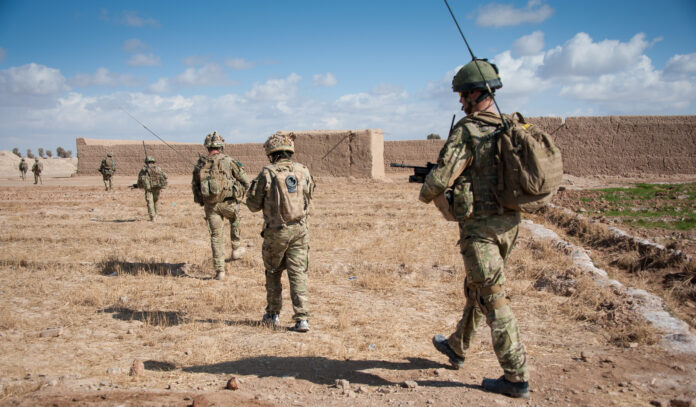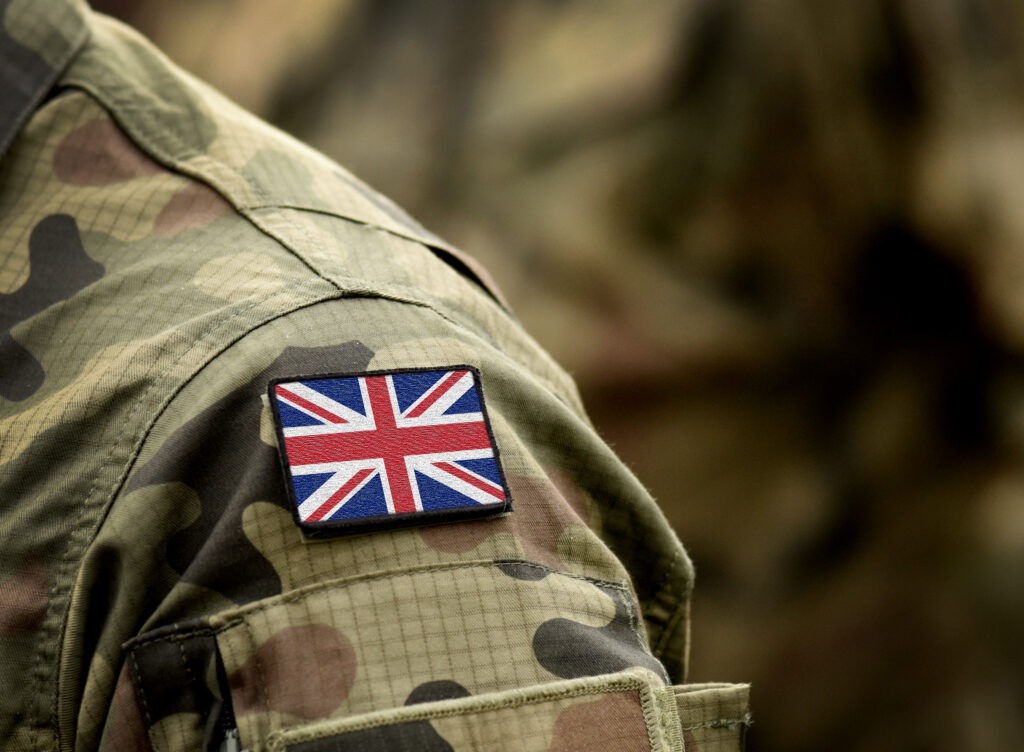A British government report has recommended that the armed forces target the Muslim community for recruitment.
The Bloom Review, published earlier this week, said that the government and UK Armed Forces (UKAF) should review recruitment campaigns, future recruitment contracts and HR policies to ensure that more minority faith groups, particularly British-born Muslims, are recruited and retained.
Currently Muslims account for just 0.4% of UK Regular Forces, though they make up 6.5% of the UK population according to the 2021 Census.
There are approximately 146,000 people currently serving under full operational command structures (Royal Navy, British Army, and Royal Air Force Regular Forces).
It is believed that Muslims are reluctant to join the army because of its record of waging war on Muslim nations over the past few decades, especially Iraq and Afghanistan, which resulted in hundreds of thousands of deaths, if not more.
The Bloom Review said: “The UK Armed Forces is not only one of the biggest employers in the UK, but it is also a symbol that proclaims and protects British values at home and abroad. Through its recruitment strategies, it has the potential to play an important role in advancing community integration and cohesion across diverse communities…
“The UKAF is a source of immense pride to the nation and projects the very best of British values to the world. However, those feelings of pride are not shared by every community in the UK. Addressing the barriers which prevent British citizens feeling able to join the UKAF is also essential if Britain is to cultivate a genuine sense of inclusion and belonging among minority faith communities.
Subscribe to our newsletter and stay updated on the latest news and updates from around the Muslim world!
“While there have been minor improvements in recent years, the under-representation of Muslims, Hindus, Sikhs and Jews in the UKAF compared to the general population remains a concern and should be addressed urgently. This is important for building a diverse and dynamic fighting force that represents the diversity of the society it protects.”
The number of Hindus, Buddhists and those following smaller faiths in the Regular Forces have increased in recent years, but the number of Muslim personnel in the Regular Forces has not seen significant change.
Following the launch of the British Army’s This is Belonging campaign in 2018, there was a significant jump in the number of British-born Muslims applying to join the UKAF – increasing from 330 applications in 2017 to 1,500 in 2018.
But the increase in applications doesn’t appear to have filtered down into the number of British Muslims serving in the UKAF, with a minor increase in the number of serving Muslims (from 0.4% to 0.5%) appearing in 2022.
And while more than 2,000 applications were made from British-born Muslims between 2016 and 2018 to join the UK Regular Forces, only 30 recruits completed their training during this period, and 30 British-born Muslims left the UKAF after completing their minimum terms.
The report said it is particularly important that “the UKAF works with British Muslim communities to identify and overcome whatever recruitment barriers exist and increase the number of British Muslims joining the UKAF.”
It said: “Interestingly, in 2015 a former adviser to the British Army on Syrian affairs noted that there was reportedly reluctance within some British Muslim communities to join the UKAF on the assumption that the UK was waging war on the Islamic faith.
“The former adviser noted the value of involving Muslim military officials from partner countries at recruitment events in the UK to help bridge the gap between British Muslims’ perceptions and the reality of the UKAF’s activities, including partnering with Muslim or Muslim-majority countries in a global war on terrorism to prevent regional conflicts.”
Since 2000, the British Armed Forces have been involved in several interventions in Muslim-majority nations, leading to the destabilisation of regions and significant civilian casualties.
In 2001, the British army joined the U.S.-led coalition to invade Afghanistan after the 9/11 attacks. The UK’s involvement in the conflict continued until 2014, with British forces mainly stationed in Helmand province.
In 2003, the British Armed Forces joined the U.S.-led invasion of Iraq. The UK’s involvement continued until 2009, with British forces mainly stationed in Basra.
In 2011, the British Armed Forces were involved in the NATO-led intervention in Libya. The UK mainly provided air support and logistics for the operation, which led to the overthrow of Libyan leader Muammar Gaddafi.
And since 2014, the British army has been involved in the international coalition fighting against ISIS in Syria. The UK’s involvement has been mainly through air strikes and training of local forces.




















